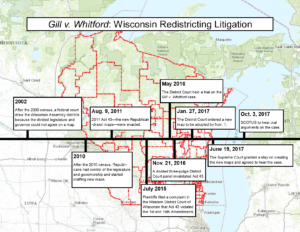Earlier this year, the Supreme Court sent an order to the Department of Administration (DOA) that it will no longer transfer funds to DOA in support of the Judicial Council. Separately, Gov. Scott Walker defunded the Council through a veto in the state budget.
The Supreme Court cited concerns about an “extraordinary” 38 percent salary increase for the Judicial Council staff attorney effective July 1 and the “means and manner” by which the increase was obtained. Justices Ann Walsh Bradley and Shirley Abrahamson dissented, arguing for the Judicial Council’s importance to Wisconsin’s judicial system.
The Judicial Council’s four-person executive committee met in June and voted to raise the Council’s only staff attorney April Southwick’s salary from $59,600 to $82,326. The Wisconsin State Journal reported that on August 1, Director of State Courts Randy Koshnick sent an email to DOA saying that under state law, the executive committee could not authorize a raise without a quorum of 11 council members. According to the Wisconsin State Journal article, in a later email to the Associated Press, Southwick said the raise was meant to increase her salary to the level of “a male judicial branch employee in a similar position.”
After the Supreme Court sent the order to DOA, Gov. Scott Walker issued a veto of provisions relating to the Judicial Council in the state budget. Walker had originally proposed eliminating the Judicial Council, but the Joint Finance Committee and the budget bill as passed by the legislature restored the Council. Walker’s veto did not eliminate the Council, but eliminated funding for the Council. The statute (20.670) creating the Judicial Council remains in place.

